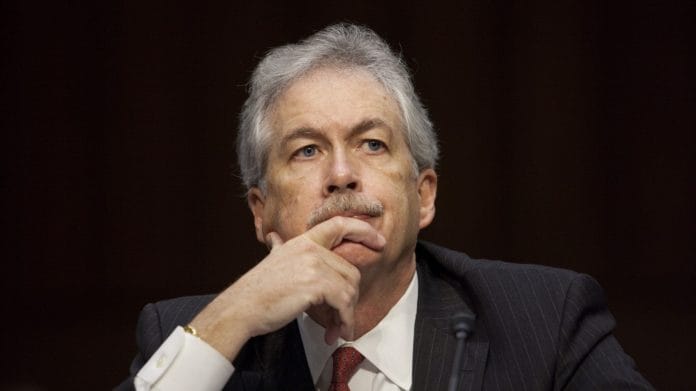US presidents have called upon CIA directors to destabilize regimes, hunt down terrorists and steal the secrets of adversaries. One often overlooked job for American spy leaders, though, has been as a secret channel, or a quiet diplomat.
This is the most interesting aspect of President-elect Joe Biden’s choice to lead the CIA, William Burns. As one of the most respected diplomats of his generation (every living secretary of state recorded a message of congratulations for him at his retirement ceremony in 2014), Burns is well positioned to be the first member of the Foreign Service to lead the CIA.
This will be particularly important when it comes to Iran. Biden has said he would rejoin the 2015 nuclear deal with Iran if the Iranians came back into compliance with its limitations on uranium enrichment. Burns is quite well suited for the kind of quiet diplomacy that would be necessary to restart the Iran talks.
In 2012, Burns pursued the first secret talks with Iranian officials through the offices of the late Sultan Qaboos of Oman that led to the 2013 interim nuclear agreement that preceded the one negotiated in 2015. One of the more remarkable elements of that effort was that the diplomacy with Iran never leaked to the press, or even to allies.
In his memoir, Burns describes how he and Jake Sullivan (now Biden’s pick for national security advisor) boarded flights without passenger manifests to Oman, and how they took service elevators in grand hotels to avoid being spotted by reporters and other diplomats.
The secrecy of those talks was necessary not only to avoid political friction in Washington, but also as a signal to the Iranians. Early on, Burns’ Iranian interlocutors warned that if the fact of these talks ever got out, the Iranian side would walk away. When U.S. officials finally did brief America’s allies, most were annoyed but understanding. One exception was Israeli prime minister, Benjamin Netanyahu. Burns writes in his memoir that the Israelis likely knew about the talks from their own intelligence service. Nonetheless, he writes that Netanyahu “saw our back channel as a betrayal.”
This gets at another way Burns will be crucial to Biden’s efforts to restart diplomacy with Iran: managing Israeli sabotage inside the country. During the Trump years, the CIA and its Israeli equivalent, the Mossad, formed a close partnership. Recent Israeli operations inside Iran include taking out the scientist overseeing its nuclear weapons program and a top al Qaeda official. In 2018, the Israelis announced their successful mission in Iran to raid a secret warehouse that contained the files on Iran’s never declared nuclear weapons program. Should Biden seek to reel in those efforts, he will need Burns to conduct that diplomacy with Israel.
However, a better approach for Biden would be to treat Israel’s extraordinary intelligence capabilities inside Iran as a hedge if nuclear diplomacy fails. Cyber attacks, industrial sabotage and assassinations will not get Iran’s current regime to unlearn the nuclear physics it has mastered to build a crude weapon, but such tactics could delay Iran’s program. As CIA director, Burns will be in the best position inside the U.S. government to advise Biden on this delicate question.
In the meantime, the Senate Intelligence Committee should ask Burns his views on both renewing diplomacy with Iran as well as sustaining a partnership with the Mossad. Burns should ponder this question as well. Three years ago Israeli saboteurs and spies exposed the limits of the nuclear agreement Burns helped negotiate. Will he restrain them now that he has a chance to negotiate with Iran for a second time? – Bloomberg
Also read: White House counsel’s office advised Trump not to fire FBI director Chris Wray






